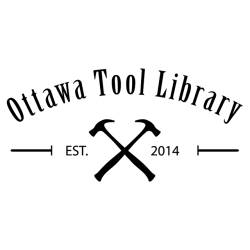Social entrepreneurs operate businesses that create social benefits. Surely, selling services and products in the pursuit of justice, environmental sustainability, and support for the marginalized should be easy. After all, doesn’t every consumer want to make the world a better place?
Well, no, actually.
Most consumers buy to satisfy some personal need. They may be hungry and buy food. They may desire to smell nice and buy body products or perfumes. They may want to be entertained and buy a video streaming subscription. They may want the cheapest price and buy from huge online retailers. Not many make purchases based upon maximizing social welfare.
There are some consumers, of course, who shop based upon a set of community values, but as much as we’d like to think otherwise, these conscious consumers remain in the minority. We must also remember—particularly now during economic challenges for many—that some consumers may not be able to afford to purchase according to their altruistic values.
The art of encouraging citizens to undertake something that creates social value is called social marketing. Whether it is to reduce speeding, or to encourage voting, or to purchase ethically sourced food, social marketers use commercial marketing techniques and concepts—advertising, traditional and social media, direct mail, email broadcasts, word of mouth, customer journey, relationship marketing, etc—to bring about and support social change.
A recently read article provides some useful guidance to anyone trying to convince someone to do something that they don’t instinctively want to do. Summarizing somewhat, the recommendations were as follows:
- Break down the activity into small steps
- Provide progress indicators (or an understanding of the cost/commitment required)
- Provide incentives for completion (intrinsic rewards whenever possible)
- Instill competence (allow people to learn or share their knowledge)
- Allow for autonomy (people resist being controlled)
- Ensure they understand the context/purpose (relatedness).
These recommendations work well if you are convincing a child to get immunized (the example used in the article), to encourage someone to get sober, or to complete a university course.
But how do we use these recommendations to encourage consumers to make the right purchasing decisions? Below is a rephrasing of the recommendations to support social marketing efforts for the social entrepreneur:
- Don’t try to explain your entire social value proposition at once. Recognize that consumers may need to understand elements of your mission, not the entire social challenge you are addressing.
- Whenever possible, link their purchase to a tangible goal. “By purchasing this product, you’re providing a young person with job training.”
- Use loyalty programs, discounts, contests or other “prizes” to reward your customers. Use these extrinsic rewards whenever the intrinsic rewards—like the knowledge that they are helping to support their community—are insufficiently motivating.
- Provide your consumers with links to further information, crowdfunding, ways to get involved, or other learning and empowering tools. Think of each consumer as a potential ally in your social mission, and use language, images, and information that give them competence.
- Do not undermine your competition, or use negative advertising messages to insinuate to your customer that they need to buy your product over the competitor’s product. If you engage them based upon their own needs and expectations, that provides them with the autonomy to make the (right) choice to buy your product.
- Provide context for your social enterprise. It is a challenge to not overwhelm your customer with details while informing and engaging them in your mission. Providing succinct context can help them relate to how their purchase contributes to not only meeting their needs (for example, great coffee) but also the community needs (for example, fair wages). Context links their action as a consumer with your mission.
One last note that we frequently share with our social enterprise clients: Do not assume that your social mission alone will sell your products or services. The vast majority of purchasing decisions are affected by price and market perceptions of quality (which also includes convenience and availability). If you aren’t competing on price and quality, social marketing strategies and activities will have only a marginal effect on consumer choices.




